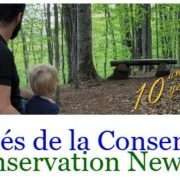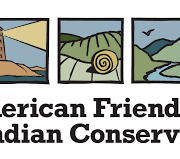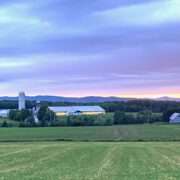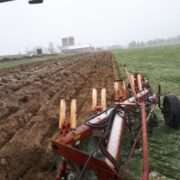View our November newsletter on Mailchimp
Archive for month: November, 2021
American Friends of Canadian Conservation is a US charity that partners with Canadian conservation organizations and American owners of environmentally and ecologically significant lands to protect Canada’s lands. It helps to preserve Canada’s natural areas, scenic landscapes, sensitive watersheds, recreation resources, important habitat for fish, birds and wildlife, and the places that hold generations of family memories.
AF of CC was created to remove the tax and legal barriers that prevented US taxpayers from permanently protecting their Canadian natural lands. Gifts of land and conservation easements to American Friends are charitable donations in the US and effectively not subject to Canadian capital gains
https://conservecanada.org/portfolio-item/massawippi-conservation-trust/
Massawippi organizations work to conserve land in Quebec’s Eastern Townships
The border between Canada and the United States may be the world’s longest international border but it may also be the friendliest, with long-standing positive relationships between the residents of both countries. Quebec’s Eastern Townships is one region where that close connection is very apparent. Just 30 minutes or 36 km from the Vermont border, the charming town of North Hatley, Quebec traces its origins all the way back to 1792 when American Captain Ebenezer Hovey encountered Lake Massawippi during his explorations of the area. Of course, the first people to discover Lake Massawippi would have been the Abenaki First Nation who chose to name the 15-square-km lake Massawippi, a word meaning “abundance of clear water.”
Whether hundreds of years ago or today, there seems to be firm agreement that the landscape of the Massawippi area possesses great ecological and aesthetic value. Two organizations have been successful in their ongoing efforts to conserve land and the environment in the area.

Currently the work of the Massawippi Conservation Trust is focused on undeveloped land on the west slopes of Lake Massawippi, stretching over six kilometers and rising up to the high ridge. Experts have noted the value of the old growth forest and a wide variety of rare or threatened flora and fauna on these lands. Tom Wilcox is a one of the founders of the Trust – his family has been escaping summers in the US and spending time in the Massawippi area for five generations.

“In addition to the cash, we have received donated properties and servitudes worth more than $3,000,000. Thanks to our donors and partners, we have become a leading voice for ecological health and sustainability,” said Patterson Webster, Chair of the Massawippi Foundation.


“We are very grateful to American Friends,” said Wilcox. “I would advise any American who might be considering the future of their property in Canada to investigate American Friends. With the tax benefits available, you can ‘do well, by doing good’.”
Conserve Canada
They were chosen by our committee to receive the first Agri-Environmental Leadership Award by meeting the criteria of the committee which consisted of :
Dr. Eric van Bochove, recently retired executive responsible for the scientific direction of Agriculture and Agri-Food Canada’s research and development centres.
Dr. Darren Bardati, Professor and Chair of the Department of Environment and Geography at Bishop’s University in Sherbrooke.
Stéphanie Durand, who currently works for Agriculture and Agri-Food Canada in human resources and feed production management for their dairy herd: rotation, input purchases, crop management.Excerpts from the questions on the Leadership Prize application form.
HOW WOULD YOU DESCRIBE YOUR BUSINESS?
A 4th generation family business committed to producing high quality milk in a sustainable way. The respect for resources, people and animals is part of the company’s values. We are passionate about our work and are always looking for new knowledge.
ARE THERE OTHER ASPECTS OF AGRI-ENVIRONMENTAL MANAGEMENT ON YOUR FARM THAT YOU WOULD LIKE TO TELL US ABOUT?
We believe in regenerative agriculture which is a good concept to improve soil life.
Soils that will sequester carbon (slowing climate change), living soils that will need fewer pesticides and mineral fertilisers, so less leaching loss. We are working on returning animals to pasture which helps to restructure the soil and we will try compost tea which is a natural way to make a soil productive and resistant. We also want to improve the water cycle by reducing compaction and encouraging water infiltration into the soil. The idea of collecting rainwater from the roofs of buildings is something we want to do.
WHAT WILL YOU USE YOUR $10,000 PRIZE MONEY?
-Purchase equipment that will help us do direct seeding of maize.
-Purchase plants and shrubs
-Take training courses
-Work with cover crop consultants.
A word of thanks from the Viens family –
Thank you again for this great competition, it gives us a boost and encourages us to continue our efforts for healthy ecosystems.

Jean-Martin Fortier, Jane Elizabeth Gowman, Alexander Brand (Ferme Fellgarth) et Nathalie Viens, Pascal Viens (Ferme Vimo), Eric van Bochove.
Alex Brand and his wife Lindsay-Jane Gowman are the winners of the Agri-Environmental Leadership Award for an organic farm.
They were chosen by our committee to receive the first Agri-Environmental Leadership Award by meeting the criteria of the committee (including Dr. Eric van Bochove, Dr. Darren Bardati, and Stéphanie Durand who are described above).
Excerpts from the questions on the Leadership Prize application form.
HOW WOULD YOU DESCRIBE YOUR BUSINESS?
Farm purchased 1971, by Gudrun and Wilhelm Brand, German immigrants, two children Kerstin and Alexander. Fellgarth Farm was a pioneer certified organic farm in Eastern Townships in the early 80’s. Growing diverse crops such as vegetables, corn, hay, barley, spelt, oats and soybeans. A livestock production with beef and chickens, sold with vegetables at the farm store.
The farm is now operated by the second generation, Alexander Brand and his wife Lindsay-Jane Gowman. In 2015 we partnered and created Ferme Fellgarth SENC while having and raising the third generation
of 6 children. Alexander has a degree in Agriculture from MacDonald College and was born and raised in Hatley and has operated the farm. Jane has a Bachelor of Arts from Bishop’s University and was born and raised in North Eastern British Columbia. The uniqueness of our family’s heritage is a strength to our enterprises. We bring an understanding of the country, the world, other languages, cultures as well as integrating German/Western Canadian agriculture practices to our farm located in the unique Eastern Townships. It allows us to be open minded and aware of other environments.
Both are passionate about sustainable, safe, regenerative agriculture which is family and community orientated, while being profitable. Our main expertise and revenue arrives from cattle, crop and hay production. We maintain small animal husbandry with our most recent trial farm animal being pastured pork.
ARE THERE OTHER ASPECTS OF AGRI-ENVIRONMENTAL MANAGEMENT ON YOUR FARM THAT YOU WOULD LIKE TO TELL US ABOUT?
To conclude, it has been awhile since either of us gave deep, up to date thought on our agro-environmental management. This exercise and generous opportunity was thought provoking. It helped us be informed on immediate changes that are being made and a renewed call for leadership and our present involvement.
HOW WILL YOU USE YOUR $10,000 PRIZE MONEY?
- No firm idea yet. Still thinking about it.
A word of thanks from Jane on behalf of her family – See photo

The Massawippi Foundation and the Massawippi Conservation Trust is joining the sustainable agricultural movement. These prizes are part of our contribution.


The awards are part of an initiative to support the sustainable agriculture movement.

Jean-Martin Fortier, Jane Elizabeth Gowman, Alexander Brand (Ferme Fellgarth) et Nathalie Viens, Pascal Viens (Ferme Vimo), Eric van Bochove.

Latest Articles
 Reflections on Some Common Nature “Do’s and Dont’s” | Part 2July 3, 2024 - 9:10 am
Reflections on Some Common Nature “Do’s and Dont’s” | Part 2July 3, 2024 - 9:10 am A beautiful day, out of the office and off the hiking trailsJuly 2, 2024 - 10:31 am
A beautiful day, out of the office and off the hiking trailsJuly 2, 2024 - 10:31 am Trails Essay – May 2024 by Matthew ClearyMay 21, 2024 - 1:23 pm
Trails Essay – May 2024 by Matthew ClearyMay 21, 2024 - 1:23 pm





